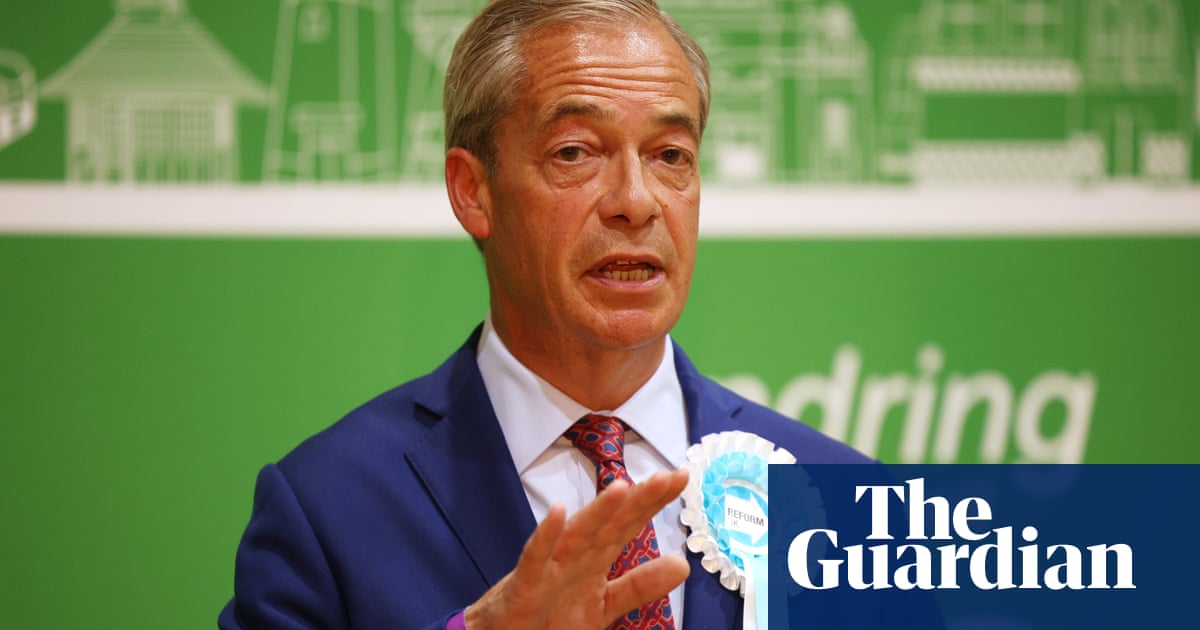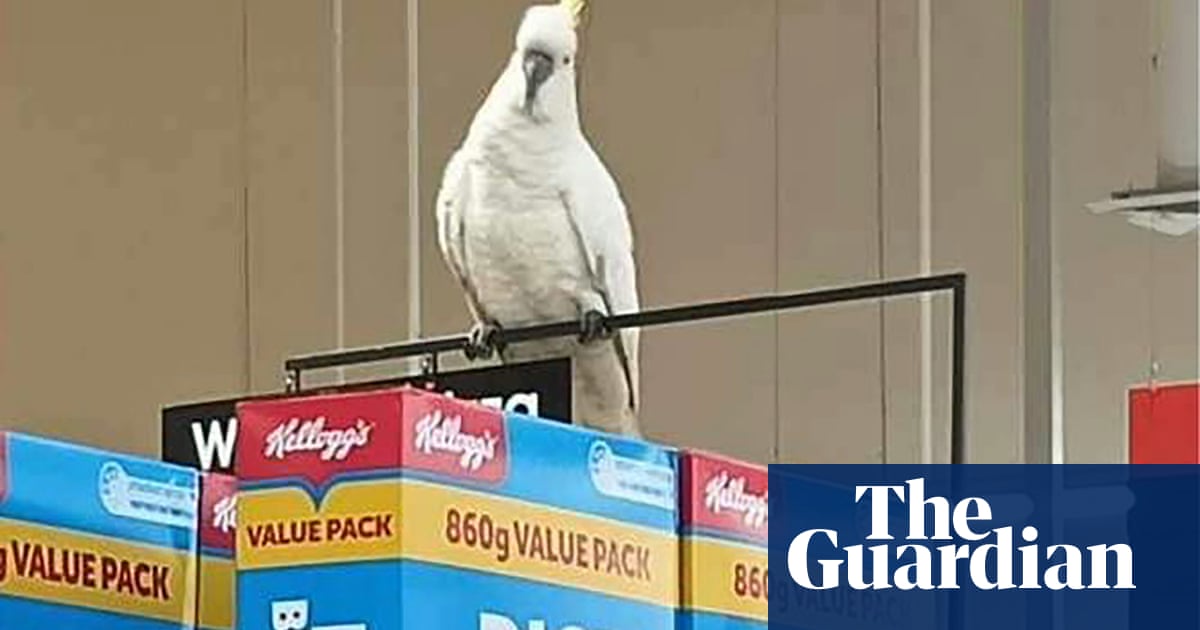Nigel Farage has been elected as the MP for Clacton, finally succeeding in getting a seat in parliament at his eighth attempt.
The Reform UK leader’s victory came on a night when the hardline rightwing party surged in support elsewhere, winning four seats by 4am on Friday, with the former Conservative deputy chair Lee Anderson successfully defending his seat in Ashfield.
Richard Tice, Reform’s chair and the man who stepped aside so Farage could return, won Lincolnshire constituency of Boston and Skegness, calling it “the proudest day of my life”. The former Southampton football club chairman Rupert Lowe also won a seat in Great Yarmouth, which has been held by the Conservatives since 2010.
Farage defeated the Conservative candidate, Giles Watling, who had represented the coastal constituency in Essex since 2017. Farage won 21,225 votes to Watling’s 12,820, a majority of 8,405.
In a speech after his victory was announced, Farage served notice that his party would be turning its guns on Labour.
“We are coming for Labour … be in no doubt about that,” he said, in a short speech at a leisure centre in the seaside town.
Revelling in the Conservative party’s heavy defeat across the country, Farage railed against the party he had once been a member of, telling reporters: “They are literally a broad church that has no shared religion.”
He ruled out working in parliament with the Conservative party itself but opened the door to Tory MPs coming over to Reform.
Asked if he wanted to become prime minister, he replied: “Whatever happens, happens, and probably by 2029 this movement will have found someone younger and better looking than me.”
Farage told reporters he would “speak up” and provide a challenge in government. As to what Tory MPs should do, he said those who were part of the “one nation” tradition should stay where they were, while others should look to Reform and “join the team”.
“They are so split down the middle. They spent the last four years fighting each other, so God knows what they will be like now,” he said.
Clacton had been regarded as Reform UK’s best hope of taking a seat. It was the only constituency to return a Ukip MP in a general election when it was won in 2015 by Douglas Carswell, who had successfully retained it during a byelection the previous year after defecting from the Tories.
Anderson described his constituency of Ashfield as “the capital of common sense” in his victory speech after polling 17,062 votes, beating Labour’s 11,553. Anderson’s old party was beaten into fourth place by an independent candidate.
after newsletter promotion
In his acceptance speech after winning with a 1,425 majority over Labour, Lowe said a “flood of change was coming over Britain’s political system”.
“I’m intent on ensuring we end up with more common sense in government; that we put the British people first,” he added. “I’m committed to bring about change in Westminster and thereby bring about change in Great Yarmouth.”
Reform had been projected to win as many as 13 seats, according to the 10pm exit poll. Declarations in north-east England showed it outpolling the Conservatives to come second to Labour. But early results for target seats Barnsley North and Barnsley South showed Reform coming second. After Farage’s victory, expectations had been tempered and Reform believed it would win about four seats.
Before his election, Farage had used a video posted on X to deliver his first response to the exit poll, saying: “It’s midnight, there are two results in from the north-east of England that put Reform on 30% of the vote; that is way more than any possible prediction or projection. It is almost unbelievable.”
Early declarations underlined the surge in support for the party in what had been strong Brexit-supporting areas of north-east England, where Reform outpolled the Tories in a number of seats.



